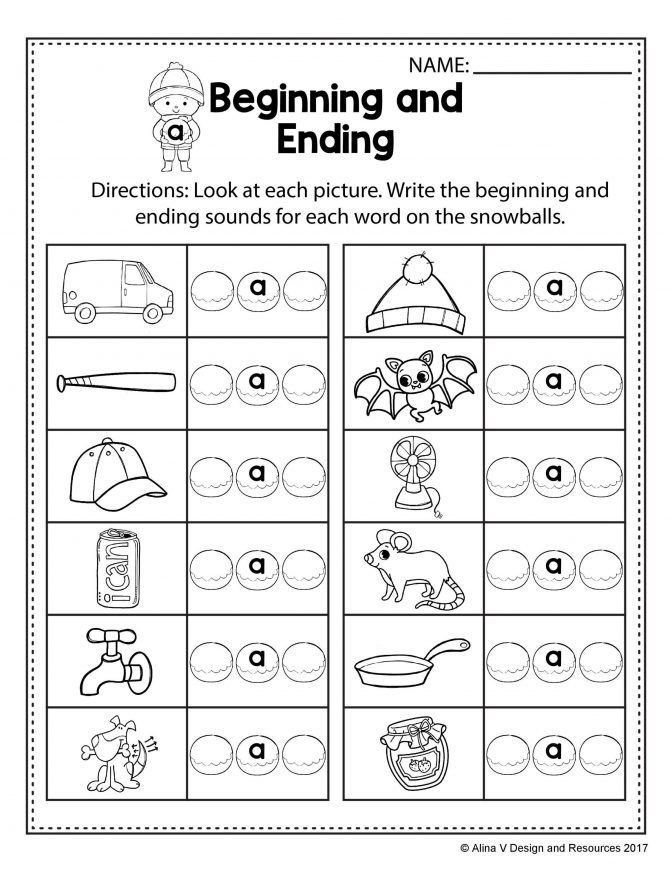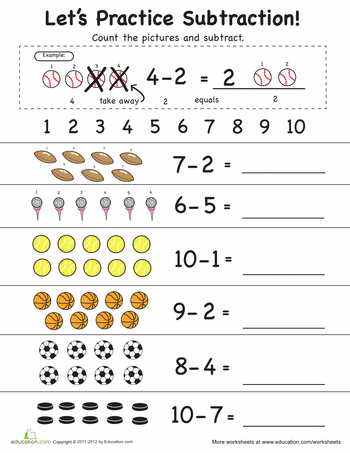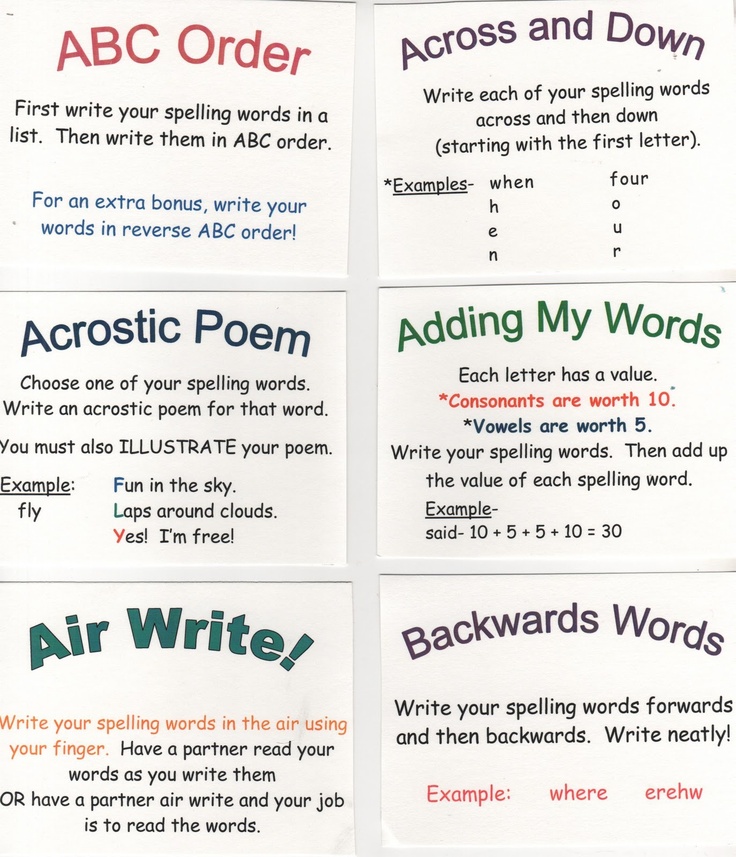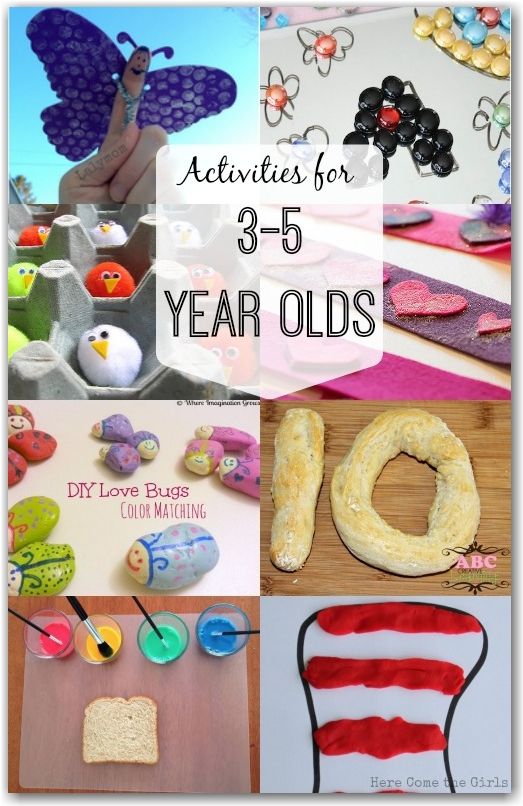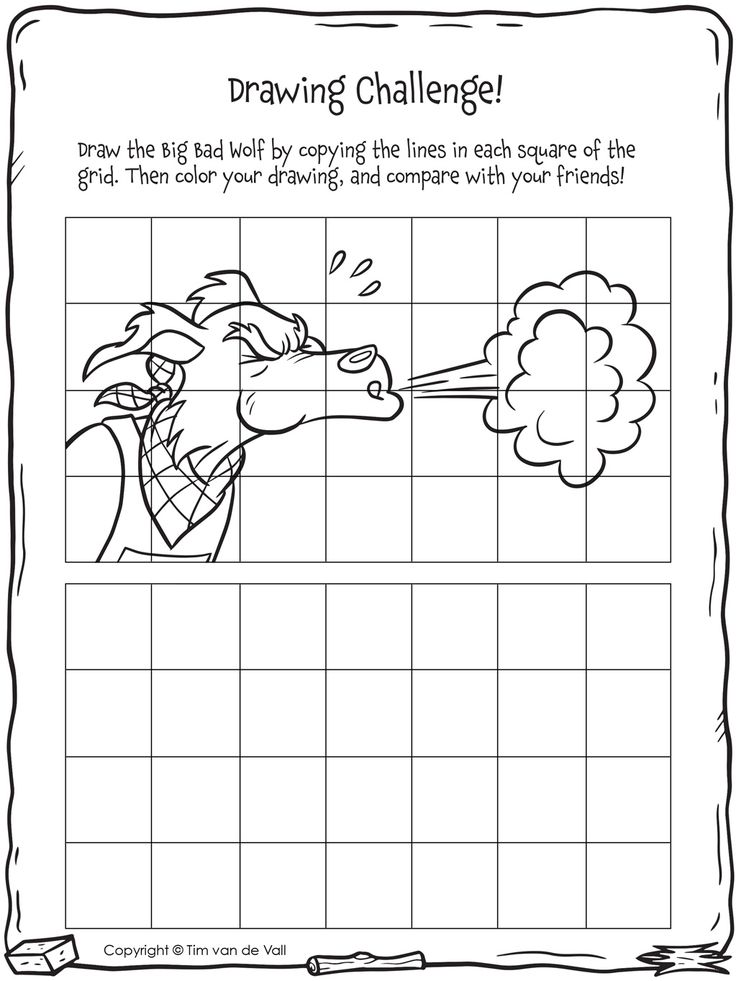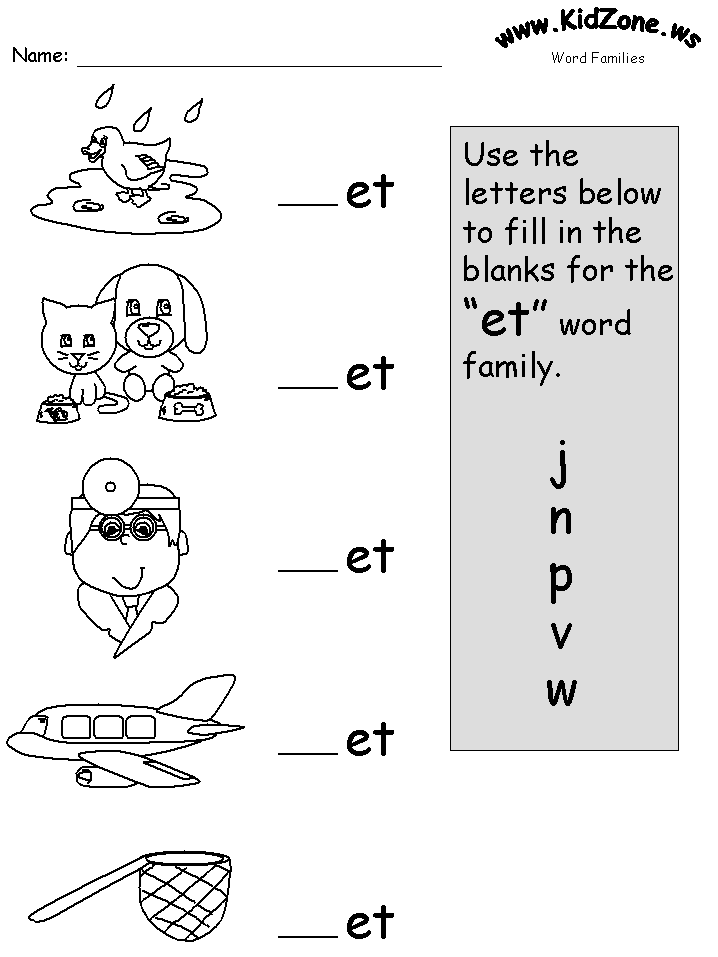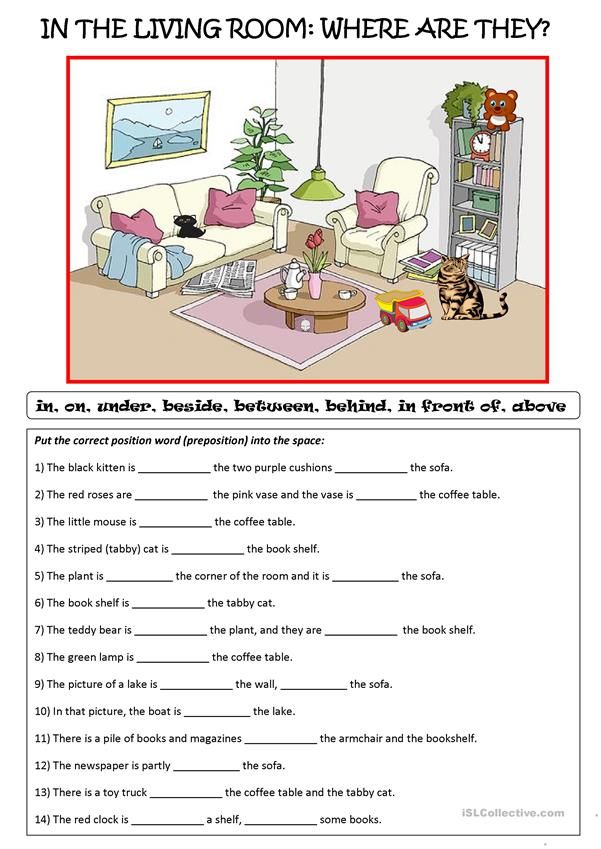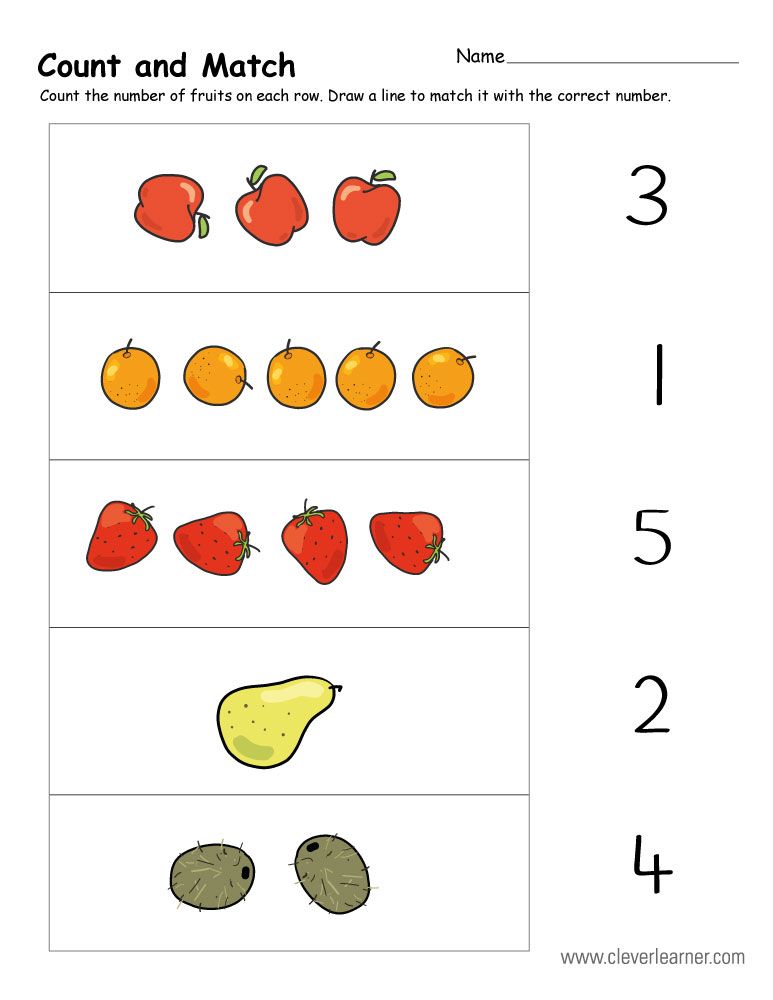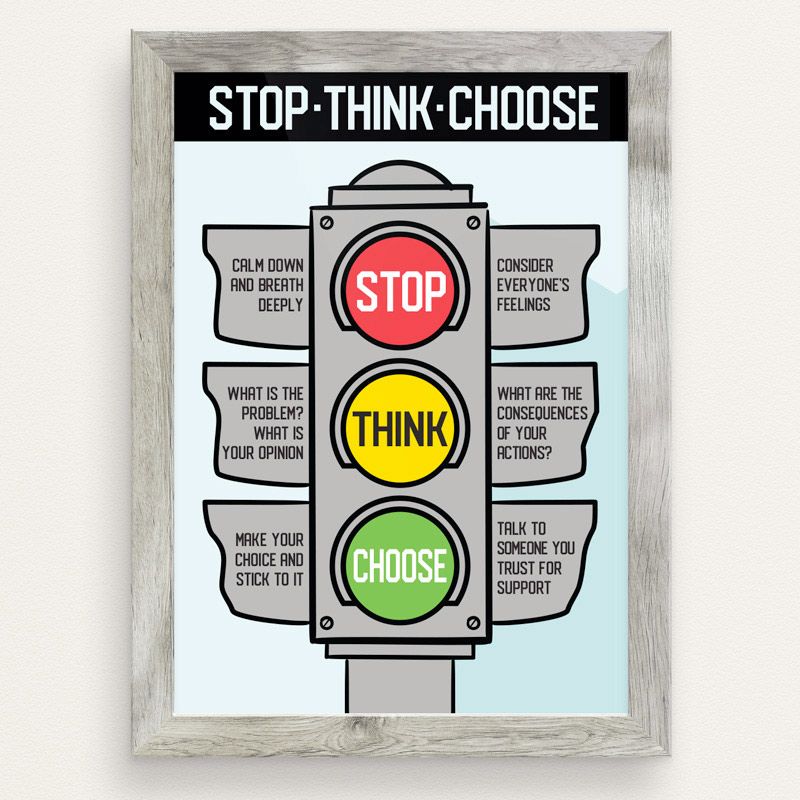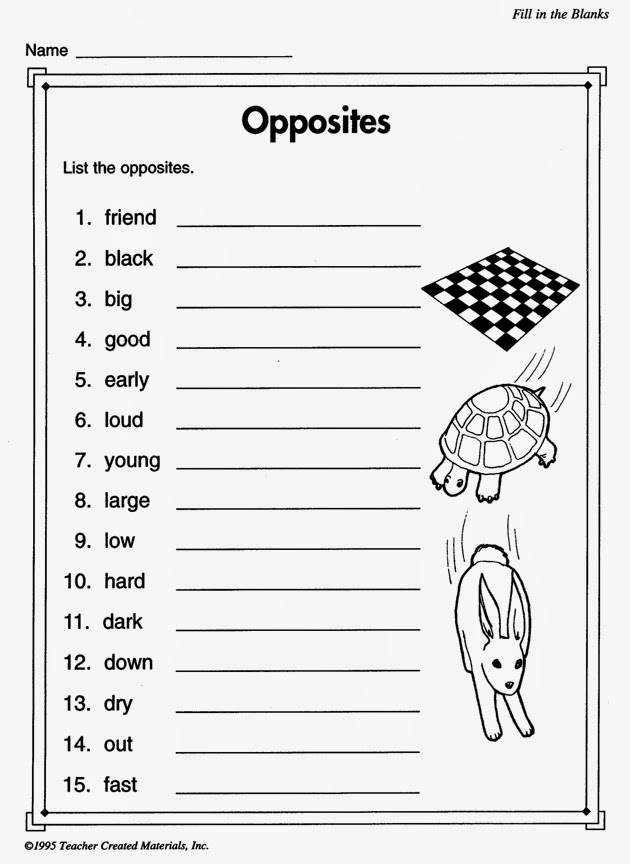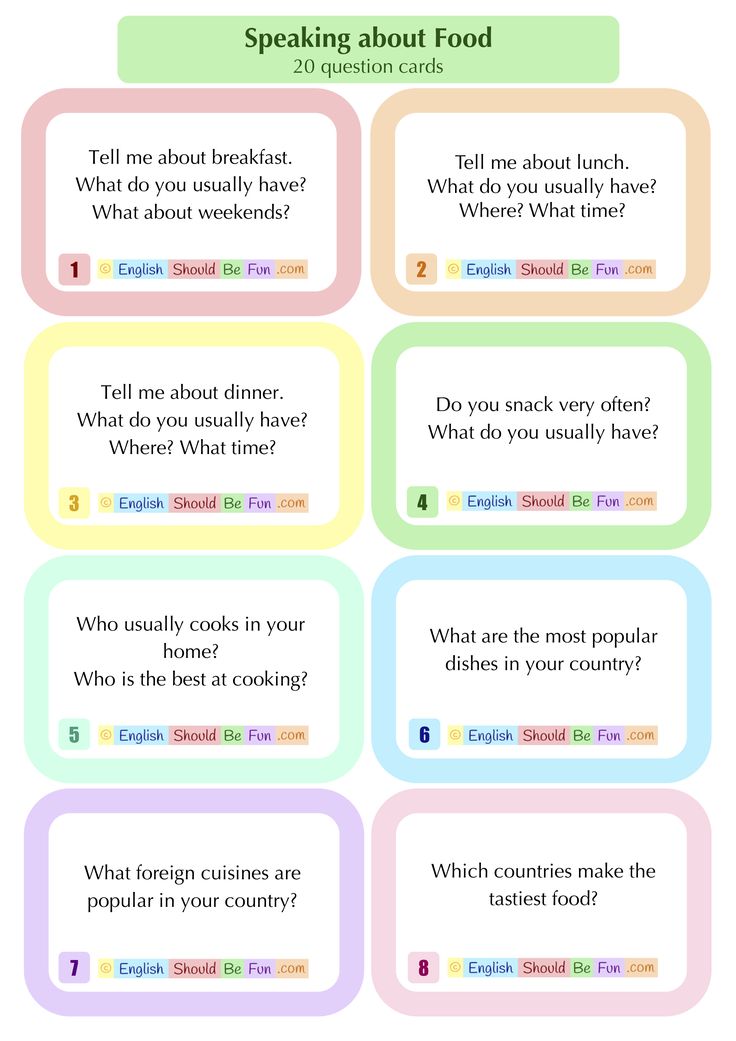Math games for prek
Preschool Math Games and Activities to Engage Young Learners
Preschoolers have lots of important math skills to learn before they start kindergarten. Counting, number sense, sorting, patterns, comparing size, and so much more—these are all concepts toddlers need so they can move on to more advanced math concepts. These preschool math games and activities help kids master those skills in ways that are just as fun as playtime!
1. String beads on pipe cleaners
This is one of those classic preschool math games that has so many benefits for young learners. They get fine motor control practice along with learning to count, recognize numerals, and put numbers in order. All you need are pipe cleaners and beads.
Learn more: Laughing Kids Learn
2. Monster Dice Match
Rolling dice gives kids a chance to practice counting and subitizing. Get the printable for this free matching game at the link.
Learn more: The Measured Mom—Monster Dice
3.
You’ll find lots of dice-related preschool math games out there. In this one, kids roll the dice and then stack blocks together. They finish by counting the blocks all together, an early intro to addition.
ADVERTISEMENT
Learn more: Hands On as We Grow
4. Flip Uno cards to make a match
Get some memory practice while you learn numerals. Uno cards, with their bright and cheery colors and large numbers, are perfect for this, but regular playing cards work too.
Learn more: Primary Playground
5. Tag the number
We love that this game gives kids a chance to move! Tape up numbers on the wall (or write them on a whiteboard). Then have kids roll a die and run to tag the number that comes up. You can play this game in other ways too, like calling out the numbers randomly yourself, or taping the numbers in a variety of places around the room.
Learn more: This Reading Mama
6.
 Build a city
Build a cityStack building blocks and build a city skyline. You’ll get a different result every time, making this one of those preschool math games kids can play again and again.
Learn more: Cinta + Co.
7. Race to fill the cup
So simple and so fun! Grab a bin of math cubes or small toys and some plastic cups. Kids roll a polyhedral die (you can also try flipping playing cards or Uno cards) and place that many items in their cup. The first to completely fill their cup wins!
Learn more: Frugal Fun for Boys and Girls—Fill the Cup
8. Hunt for numbers
Combine a sensory experience with some number practice. Fill a bin with sand, then bury playing cards for kids to find and match up.
Learn more: Busy Toddler/Number Hunt
9. Bounce a balloon
Everyone loves playing with balloons! Roll a die, then see if you can bounce a balloon into the air that many times without letting it hit the ground.
Learn more: Confidence Meets Parenting
10.
 Build a beetle
Build a beetleThis is just like the original Cootie game, but no need to buy anything! Just cut beetle pieces from construction paper, then roll a die and see if you can be the first to assemble your bug!
Learn more: Teach Beside Me
11. Create shapes with sticks
Toddlers need to master their shapes, and this is a clever way to do it. Put together sets of wood craft sticks (use the same color for each shape) and let little fingers turn them into triangles, squares, and other shapes.
Learn more: Team Cartwright
12. Send bears into hibernation caves
Make “caves” from plastic bowls, then send little toy bears into “hibernation” in each one! Learn how the game works at the link.
Learn more: Pocket of Preschool
13. Park numbered cars
Vroom vroom! Number your toy cars to match the slots in a cardboard parking lot. Kids will have fun zooming them into the right places.
Learn more: B-Inspired Mama
14.
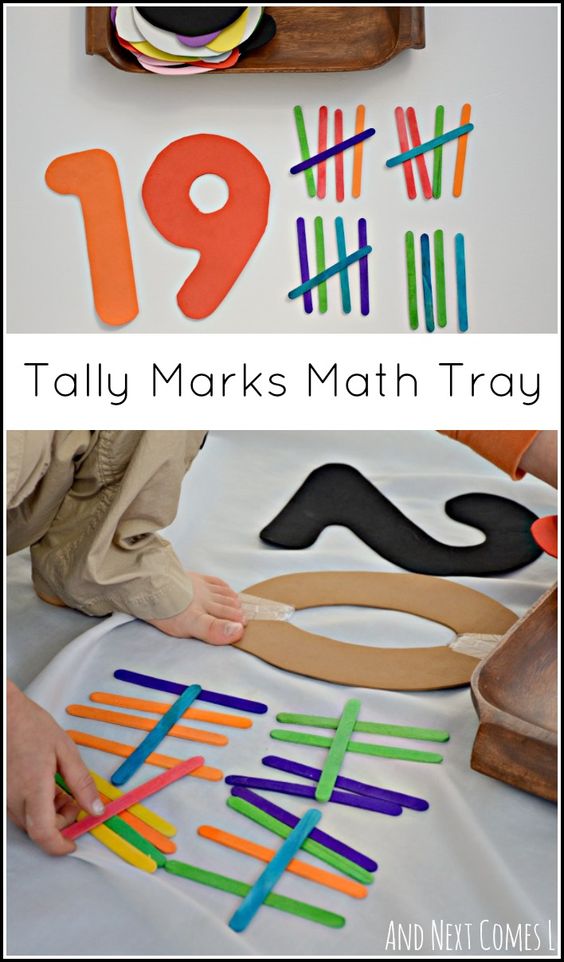 Line up dominoes
Line up dominoesDominoes are fantastic math learning tools. This game is a sneaky introduction to addition, as kids count up the total number of dots on each domino and put them in the proper place.
Learn more: Busy Toddler—Domino Line-Up
15. Copy ice tray patterns
Seeing and matching patterns is a key skill for preschoolers. Placing pom-poms into ice cube trays with plastic tweezers helps them work on fine motor skills too.
Learn more: Planning Playtime
16. Rubber Duck Math Race
In this game, kids race to see who can be the first to get their rubber duckies to 10 (or any number you choose). They roll a die and lay out tiles to move their duck. The twist? To get to 10 at the end, they must roll the exact number they need—no going over! Preschool math games like this help kids master counting to 10 and counting on.
Learn more: Happy Toddler Playtime—Rubber Duck Race
17. Feed the LEGO monster
Sort LEGO bricks by color, shape, or number of dots.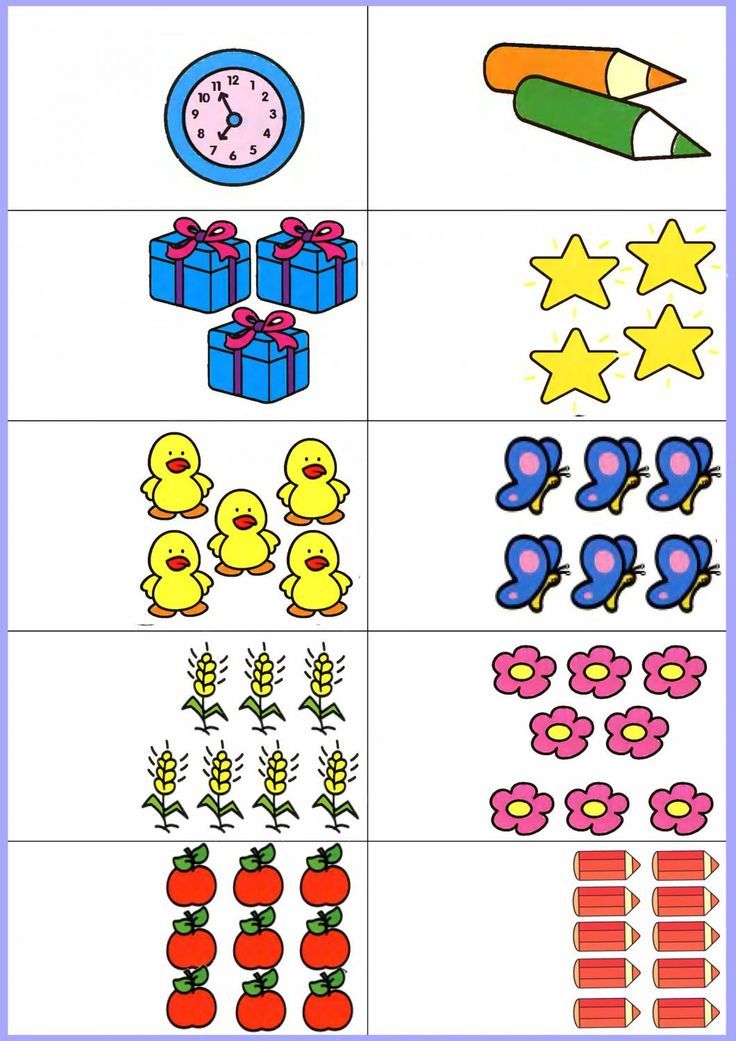 Then compare the number that wind up in each bag to learn the concept of “more or less.”
Then compare the number that wind up in each bag to learn the concept of “more or less.”
Learn more: Toddler Approved
18. Drop blocks into tubes
Upcycle some empty cardboard tubes by labeling them with numbers. Then drop small items like blocks or caps into the tubes to match the numbers.
Learn more: Happy Toddler Playtime—Tube Counting
19. Compare numbers to music
Prep for this game by using dot markers on paper plates as shown (visit the link below for more examples). Each kid takes a plate and uses it to “drive” around the room as you play music. When the music stops, they find a nearby partner and compare what they see on each other’s plates (e.g., “8 dots is more than 4 dots. 1 green dot is less than 4 green dots.”). Then start the music up and repeat!
20. Hold a shape scavenger hunt
Preschool math students are learning to recognize shapes in their environment and also to categorize and sort. This scavenger hunt does it all! Send them out to find objects in the room that match the shapes.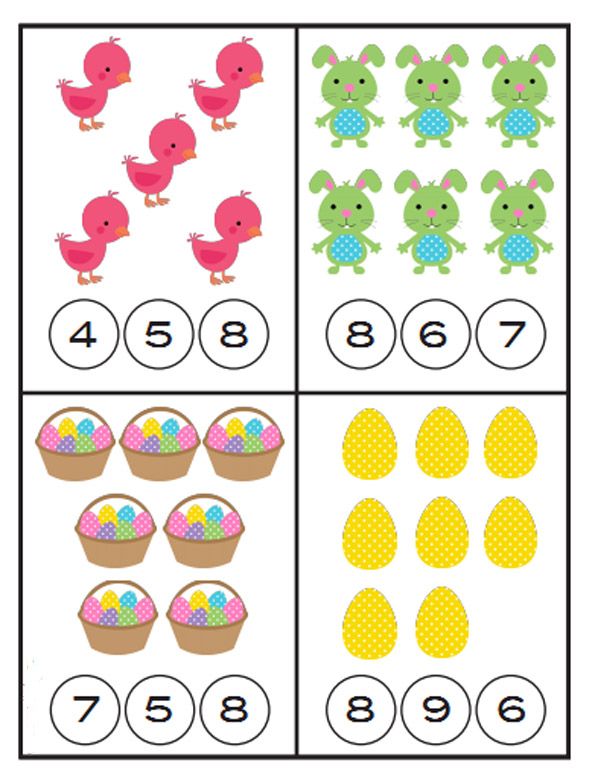 Then count and compare to see how many you have in each category.
Then count and compare to see how many you have in each category.
Learn more: Frugal Fun for Boys and Girls—Shape Scavenger Hunt
If you loved these preschool math games, be sure to check out 20 Simple and Fun Preschool Science Experiments and Activities.
Plus, get all the latest teaching tips and ideas when you sign up for our free newsletters!
Math Games for Preschoolers Online
Math Games for Preschoolers Online - SplashLearnFilter
GRADE
CONTENT TYPE
- Number Sense (119)
- Number Recognition (65)
- Number Recognition Within 3 (9)
- Number Recognition Within 5 (19)
- Number Recognition Within 10 (31)
- Number Recognition Within 20 (6)
- Number Sequence (38)
- Number Sequence Within 20 (5)
- Number Sequence Within 3 (6)
- Number Sequence Within 5 (9)
- Number Sequence Within 10 (18)
- Counting (38)
- Counting Objects Within 3 (3)
- Counting Objects Within 5 (14)
- Counting Objects Within 10 (21)
- Writing Numbers (20)
- Writing Numbers Within 5 (5)
- Writing Numbers Within 10 (5)
- Writing Numbers Within 20 (10)
- Addition (9)
- Introduction to Addition (9)
- Subtraction (7)
- Introduction to Subtraction (7)
- Geometry (10)
- Shapes (10)
- 2d Shapes (10)
- Measurement (12)
- Comparing Measurements (8)
- Compare Lengths (2)
- Group of Objects (4)
- Compare Heights (2)
- Data Handling (4)
- Sort Objects (4)
- Writing (98)
- Letter Tracing (98)
- Letter Tracing A (5)
- Letter Tracing B (5)
- Letter Tracing C (5)
- Letter Tracing D (5)
- Letter Tracing E (5)
- Letter Tracing F (5)
- Letter Tracing G (5)
- Letter Tracing H (5)
- Letter Tracing I (5)
- Letter Tracing J (5)
- Letter Tracing K (5)
- Letter Tracing L (5)
- Letter Tracing M (5)
- Letter Tracing N (5)
- Letter Tracing O (5)
- Letter Tracing P (5)
- Letter Tracing Q (5)
- Letter Tracing R (5)
- Letter Tracing S (5)
- Letter Tracing T (5)
- Letter Tracing U (5)
- Letter Tracing V (5)
- Letter Tracing W (5)
- Letter Tracing X (5)
- Letter Tracing Y (5)
- Letter Tracing Z (5)
- Reading (365)
- Phonics (290)
- Letter Names (189)
- Letter A (8)
- Letter B (8)
- Letter C (8)
- Letter D (8)
- Letter E (8)
- Letter F (8)
- Letter G (8)
- Letter H (8)
- Letter I (8)
- Letter J (8)
- Letter K (8)
- Letter L (8)
- Letter M (8)
- Letter N (8)
- Letter O (8)
- Letter P (8)
- Letter Q (8)
- Letter R (8)
- Letter S (8)
- Letter T (8)
- Letter U (8)
- Letter V (8)
- Letter W (8)
- Letter X (8)
- Letter Y (8)
- Letter Z (8)
- Letters A - Z (214)
- Lowercase Letters (78)
- Uppercase Letters (78)
- Matching Lowercase and Uppercase Letters (58)
- Match Aa - Dd (8)
- Match Ee - Gg (7)
- Match Hh - Kk (9)
- Match Ll - Pp (11)
- Match Qq - Ss (7)
- Match Tt - Vv (7)
- Match Ww - Zz (9)
- Letter Sequence (54)
- ABC Song (20)
- Alphabetical Order (34)
- Sight Words (75)
Games for Preschoolers on Number Sense
View all 119 games-
Number Recognition
Sing the Number Song from 1 to 3 Game
Ask your little one to sing the number song from 1 to 3 to play this game.
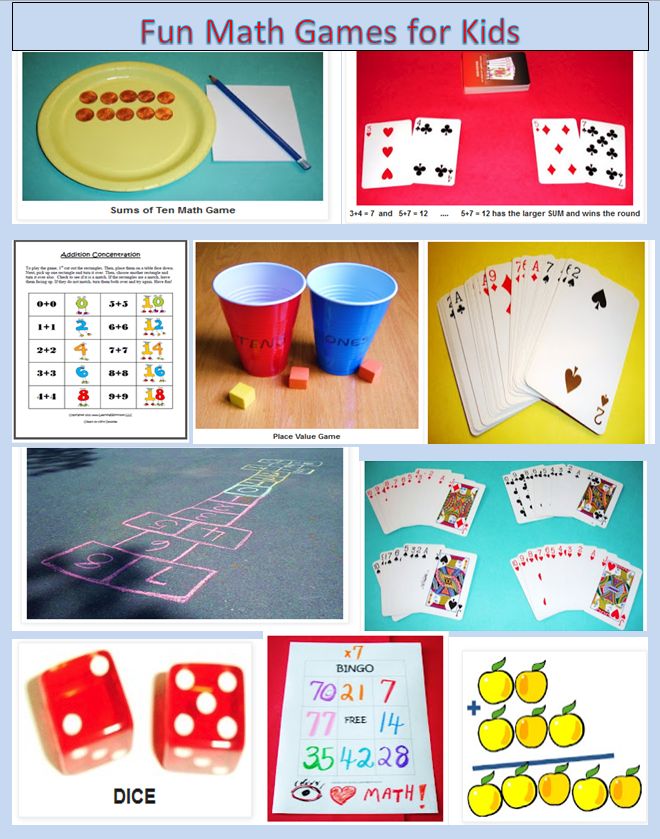
PREK K PK.CC.2
VIEW DETAILS
-
Number Sequence
Sing the Number Song from 11 to 15 Game
Sing the number song from 11 to 15 to practice numbers.
PREK K PK.CC.2
VIEW DETAILS
-
Counting
Count the Dots from 1 to 3 Game
Count the dots from 1 to 3 to begin the exciting journey of becoming a math wizard.
PREK PK.CC.4
VIEW DETAILS
-
Writing Numbers
Trace the Number One Game
Sharpen your number skills by tracing the number one.
PREK K
VIEW DETAILS
Addition Games for Preschoolers
View all 9 games-
Introduction to Addition
Model to Add Numbers Game
Dive deep into the world of math by modeling to add numbers.
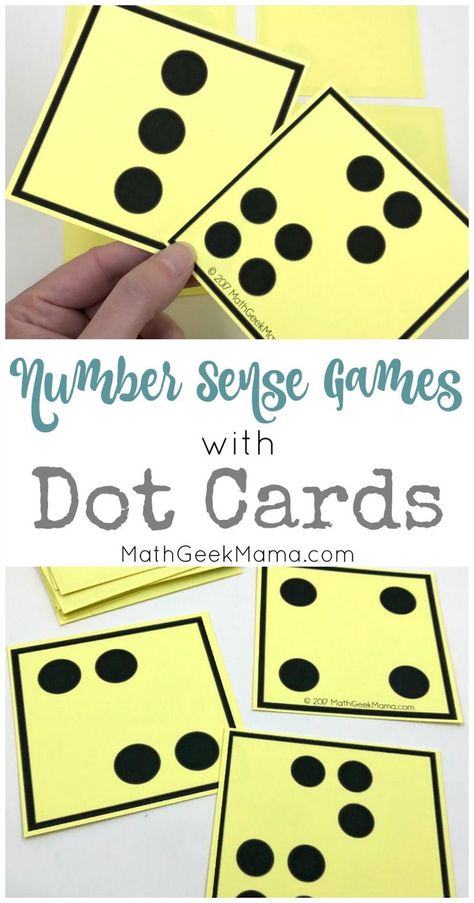
PREK K K.OA.2
VIEW DETAILS
-
Introduction to Addition
Build the Model to Add Numbers Game
Enjoy the marvel of mathematics by exploring how to build the model to add numbers.
PREK K PK.OA.1
VIEW DETAILS
-
Introduction to Addition
Count On to Add within 10 Game
Dive deep into the world of addition by counting on to add within 10.
PREK K 1 1.OA.5
VIEW DETAILS
-
Introduction to Addition
Identify Embedded Numbers Game
Help your child take flight by learning how to identify embedded numbers.
PREK K K.
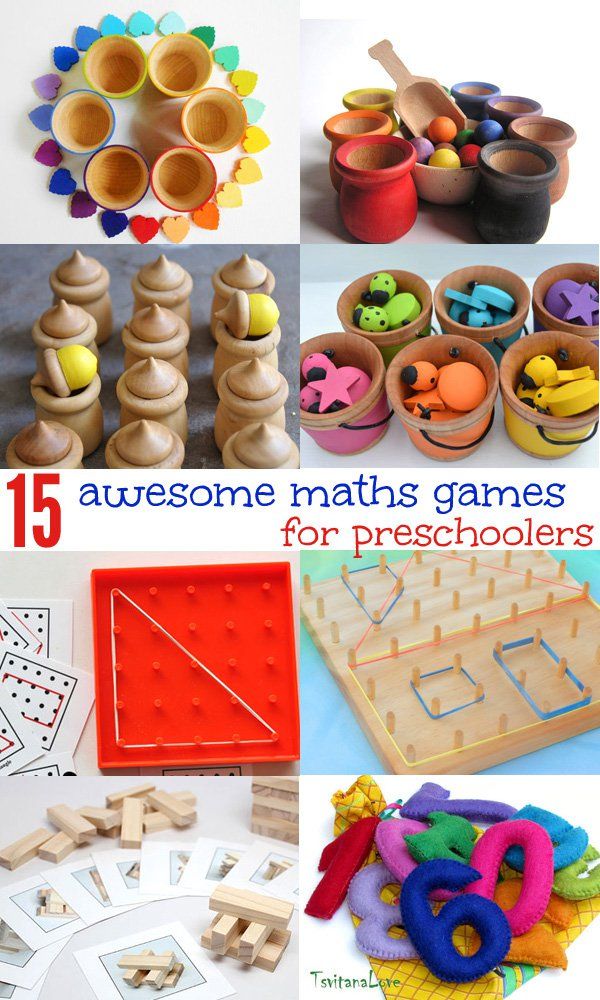 OA.3
OA.3 VIEW DETAILS
Subtraction Games for Preschoolers
View all 7 games-
Introduction to Subtraction
Remove and Match the Number Game
Enjoy the marvel of math-multiverse by exploring how to remove and match the number.
PREK K K.OA.2
VIEW DETAILS
-
Introduction to Subtraction
Take Away to Match the Number Game
Apply your knowledge of subtraction to take away to match the number.
PREK K K.OA.2
VIEW DETAILS
-
Introduction to Subtraction
Find One Less Game
Unearth the wisdom of mathematics by learning how to find one less.
PREK K K.
 OA.1
OA.1 VIEW DETAILS
-
Introduction to Subtraction
Subtraction with Pictures Game
Shine bright in the math world by learning how to subtract with pictures.
PREK K PK.OA.1
VIEW DETAILS
Geometry Games for Preschoolers
View all 10 games-
Shapes
Sort Real-World Shapes Game
Add more arrows to your child’s math quiver by sorting real-world shapes.
PREK PK.G.3
VIEW DETAILS
-
Shapes
Find Shapes All Around Us Game
Ask your little one to find and identify the different shapes around us to play this game.
PREK K K.
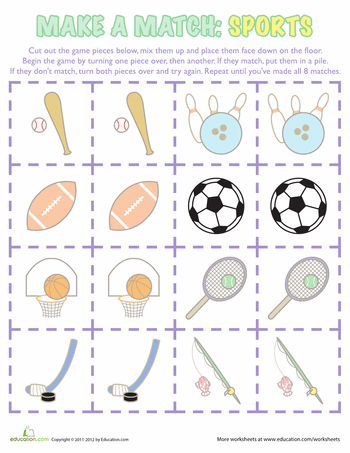 G.2
G.2 VIEW DETAILS
-
Shapes
Match Triangles and Squares Game
Enter the madness of math-multiverse by exploring how to match triangles and squares.
PREK K PK.G.1
VIEW DETAILS
-
Shapes
Match Rectangles and Circles Game
Learn to solve math problems by matching rectangles and circles.
PREK K PK.G.1
VIEW DETAILS
Measurement Games for Preschoolers
View all 12 games-
Comparing Measurements
Identify the Object with Shorter Length Game
Use your measurement skills to identify the object with the shorter length.
PREK K K.
 MD.2
MD.2 VIEW DETAILS
-
Data Handling
Identify Objects by Color Game
Sharpen your skills by identifying objects by their colors.
PREK K PK.MD.2
VIEW DETAILS
-
Comparing Measurements
Identify Which Object is Longer Game
Kids must identify which object is longer to practice measurement.
PREK K PK.MD.1
VIEW DETAILS
-
Data Handling
Sort Objects by Color Game
Dive deep into the world of measurement by sorting objects by color.
PREK K K.MD.3
VIEW DETAILS
All Math Games for Preschoolers
-
Number Recognition
Sing the Number Song from 1 to 3 Game
Ask your little one to sing the number song from 1 to 3 to play this game.
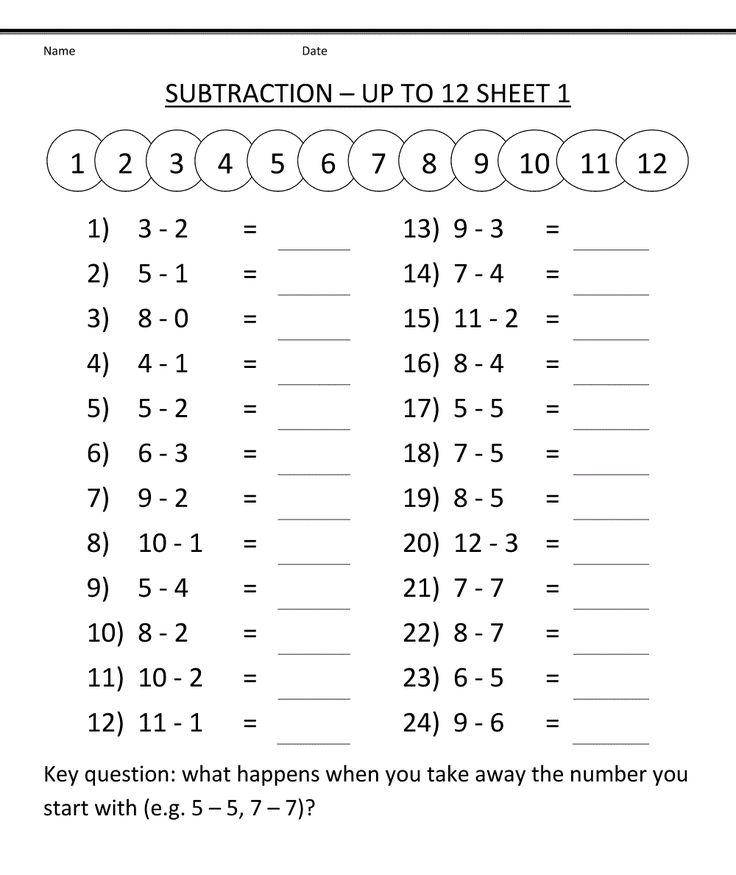
PREK K PK.CC.2
VIEW DETAILS
-
Introduction to Addition
Model to Add Numbers Game
Dive deep into the world of math by modeling to add numbers.
PREK K K.OA.2
VIEW DETAILS
-
Introduction to Subtraction
Remove and Match the Number Game
Enjoy the marvel of math-multiverse by exploring how to remove and match the number.
PREK K K.OA.2
VIEW DETAILS
-
Shapes
Sort Real-World Shapes Game
Add more arrows to your child’s math quiver by sorting real-world shapes.
PREK PK.G.3
VIEW DETAILS
-
Comparing Measurements
Identify the Object with Shorter Length Game
Use your measurement skills to identify the object with the shorter length.
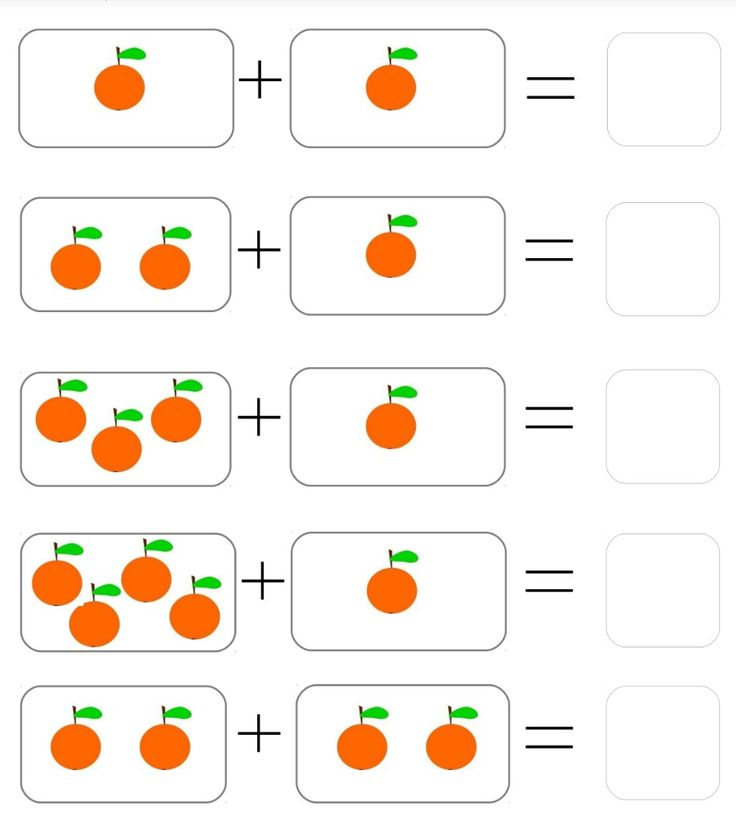
PREK K K.MD.2
VIEW DETAILS
-
Number Sense
Count Along with the Stars from 1 to 3 Game
Shine bright in the math world by counting along with the stars from 1 to 3.
PREK K PK.CC.2
VIEW DETAILS
-
Introduction to Addition
Build the Model to Add Numbers Game
Enjoy the marvel of mathematics by exploring how to build the model to add numbers.
PREK K PK.OA.1
VIEW DETAILS
-
Introduction to Subtraction
Take Away to Match the Number Game
Apply your knowledge of subtraction to take away to match the number.
PREK K K.
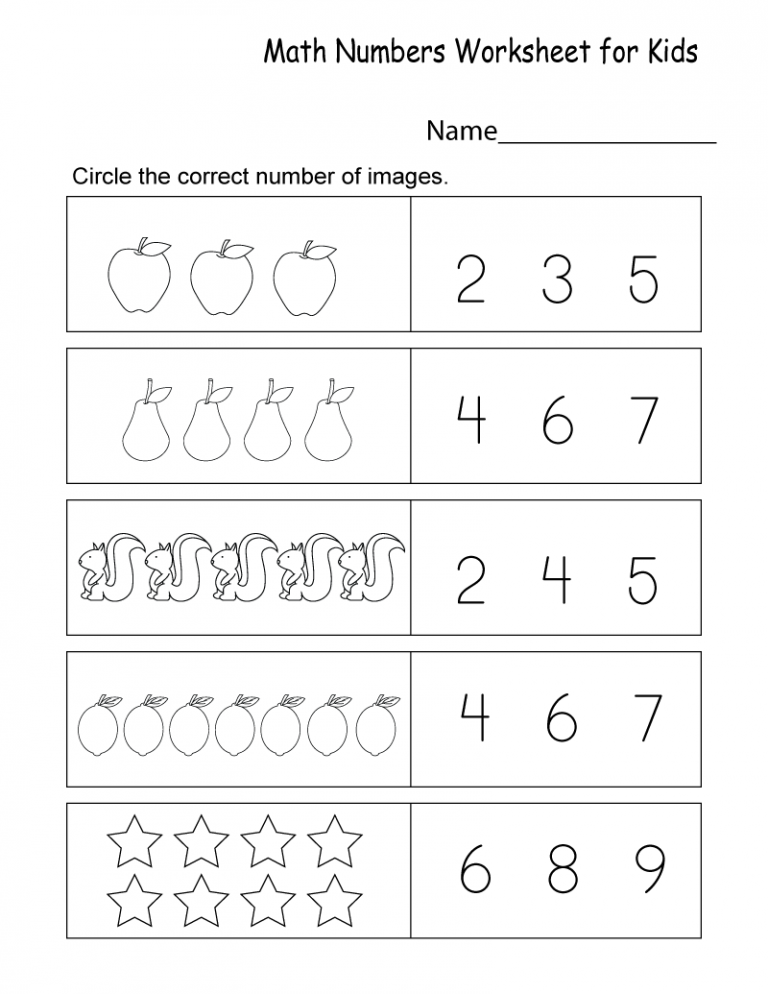 OA.2
OA.2 VIEW DETAILS
-
Shapes
Find Shapes All Around Us Game
Ask your little one to find and identify the different shapes around us to play this game.
PREK K K.G.2
VIEW DETAILS
-
Comparing Measurements
Identify Which Object is Longer Game
Kids must identify which object is longer to practice measurement.
PREK K PK.MD.1
VIEW DETAILS
-
Number Sense
Number Sequence from 1 to 3 Game
Enter the madness of math-multiverse by practicing the number sequence from 1 to 3.
PREK K
VIEW DETAILS
-
Introduction to Addition
Count On to Add within 10 Game
Dive deep into the world of addition by counting on to add within 10.
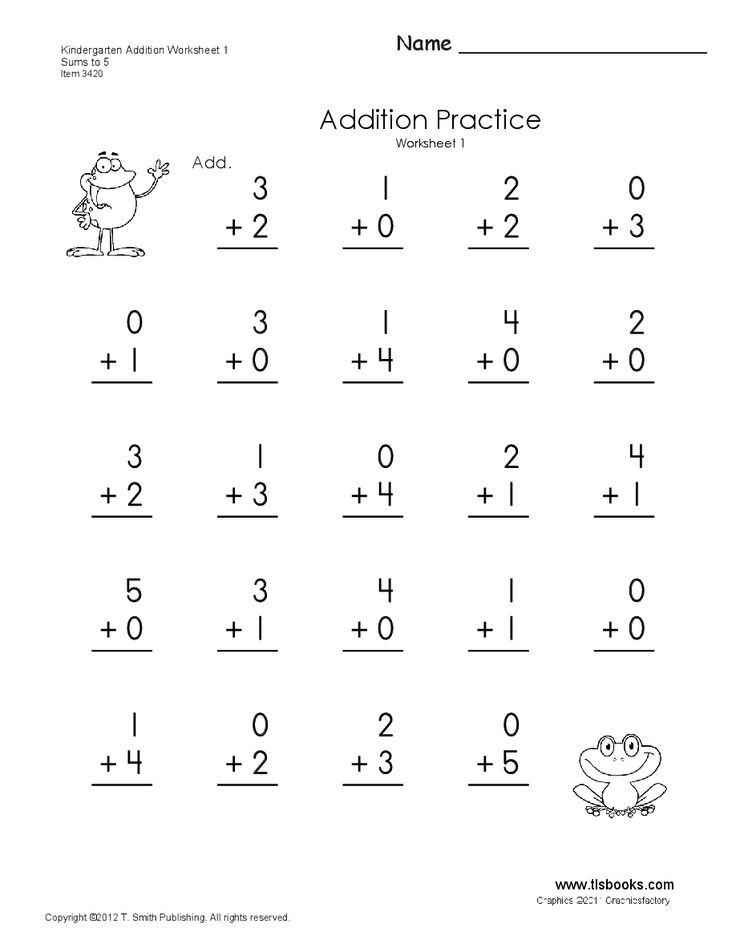
PREK K 1 1.OA.5
VIEW DETAILS
-
Introduction to Subtraction
Find One Less Game
Unearth the wisdom of mathematics by learning how to find one less.
PREK K K.OA.1
VIEW DETAILS
-
Shapes
Match Triangles and Squares Game
Enter the madness of math-multiverse by exploring how to match triangles and squares.
PREK K PK.G.1
VIEW DETAILS
-
Measurement
Compare Group of Objects Game
Ask your little one to compare a group of objects to play this game.
PREK K PK.CC.5
VIEW DETAILS
-
Number Sense
Count and Tell Numbers from 1 to 3 Game
Kids must count and tell numbers from 1 to 3 to practice number sense.
PREK K
VIEW DETAILS
-
Introduction to Addition
Identify Embedded Numbers Game
Help your child take flight by learning how to identify embedded numbers.
PREK K K.OA.3
VIEW DETAILS
-
Introduction to Subtraction
Subtraction with Pictures Game
Shine bright in the math world by learning how to subtract with pictures.
PREK K PK.OA.1
VIEW DETAILS
-
Shapes
Match Rectangles and Circles Game
Learn to solve math problems by matching rectangles and circles.
PREK K PK.G.1
VIEW DETAILS
-
Measurement
Count to find out if the objects are equal Game
Kids must count to find out if the objects are equal to practice counting.
PREK K PK.CC.5
VIEW DETAILS
-
Number Sense
Hop and Count from 1 to 3 Game
Use your number sense skills to hop and count from 1 to 3.
PREK K
VIEW DETAILS
-
Addition
Count to Find One More Game
Begin the exciting journey of becoming a math wizard by learning to count to find one more.
PREK K 1 1.OA.5
VIEW DETAILS
-
Subtraction
Subtract Using Pictures Game
Shine bright in the math world by learning how to subtract using pictures.
PREK K PK.OA.1
VIEW DETAILS
-
Geometry
Identify Triangles and Squares Game
Add more arrows to your child’s math quiver by identifying triangles and squares.
PREK K K.G.4
VIEW DETAILS
-
Measurement
Compare and Tell Where are More Objects Game
Help your child master number sense with this fun 'Compare and Tell Where are More Objects' game.
PREK K K.CC.6
VIEW DETAILS
-
Number Sense
Count and Match Numbers from 1 to 3 Game
Apply your knowledge of number sense to count and match numbers from 1 to 3.
PREK K
VIEW DETAILS
-
Addition
Find One or Two More Game
Have your own math-themed party by learning how to find one or two more.
PREK K PK.
OA.1
VIEW DETAILS
-
Subtraction
Find the Difference Using Models Game
Ask your little one to find the difference using models to play this game.
PREK K K.OA.1
VIEW DETAILS
-
Geometry
Identify Circles and Rectangles Game
Enjoy the marvel of math-multiverse by exploring how to identify circles and rectangles.
PREK K PK.G.2
VIEW DETAILS
-
Measurement
Compare by Matching Game
Take the pressure off by simplifying number sense with our interactive 'Compare by Matching' game.
PREK K PK.CC.5
VIEW DETAILS
-
Number Sense
Match Number Cards from 1 to 3 Game
Add more arrows to your child’s math quiver by matching number cards from 1 to 3.
PREK K
VIEW DETAILS
-
Addition
Find One More to Add Game
Dive deep into the world of addition with our 'Find One More to Add' game.
PREK K 1 PK.OA.1
VIEW DETAILS
-
Subtraction
Subtract and Match the Number Game
Begin the exciting journey of becoming a math wizard by learning to subtract and match the number.
PREK K PK.OA.1
VIEW DETAILS
-
Geometry
Identify Shapes by Their Names Game
Ask your little one to identify shapes by their names to play this game.
PREK K PK.G.
2
VIEW DETAILS
-
Measurement
Identify the Object with Shorter Height Game
Shine bright in the math world by learning how to identify the object with the shorter height.
PREK K K.MD.2
VIEW DETAILS
-
Number Sense
Identify Numbers from 1 to 3 Game
Enjoy the marvel of math-multiverse by identifying numbers from 1 to 3.
PREK K
VIEW DETAILS
-
Addition
Add Using Pictures Game
Begin the exciting journey of becoming a math wizard by learning how to add using pictures.
PREK K PK.OA.1
VIEW DETAILS
-
Geometry
Shapes Around Us Game
Unearth the wisdom of mathematics by learning the shapes around us.
PREK K PK.G.2
VIEW DETAILS
-
Measurement
Identify the Taller object Game
Shine bright in the math world by learning how to identify the taller object.
PREK K K.MD.2
VIEW DETAILS
-
Number Sense
Identify Number Cards up to 3 Game
Ask your little one to identify number cards up to 3 to play this game.
PREK K
VIEW DETAILS
-
Addition
Put Together and Match the Number Game
Kids must put together and match the number to practice addition.
PREK K K.OA.1
VIEW DETAILS
-
Geometry
Match Shapes Game
Take a deep dive into the world of math by matching shapes.
PREK K PK.G.3
VIEW DETAILS
-
Data Handling
Identify Objects by Color Game
Sharpen your skills by identifying objects by their colors.
PREK K PK.MD.2
VIEW DETAILS
-
Number Sense
Sing the Number Song from 1 to 5 Game
Dive deep into the world of numbers by singing the number song from 1 to 5.
PREK K PK.CC.2
VIEW DETAILS
-
Geometry
Sort 2D Shapes by Their Name Game
Enter the madness of math-multiverse by exploring how to sort 2D shapes by their name.
PREK K K.G.4
VIEW DETAILS
-
Data Handling
Sort Objects by Color Game
Dive deep into the world of measurement by sorting objects by color.
PREK K K.MD.3
VIEW DETAILS
-
Number Sense
Count Along with the Stars from 1 to 5 Game
Count along with the stars from 1 to 5 with this number sense game.
PREK K PK.CC.2
VIEW DETAILS
-
Measurement
Identify Objects by their Name Game
Take a deep dive into the world of math by identifying objects by their names.
PREK K K.MD.3
VIEW DETAILS
Counting numbers, matching numbers with the correct image, number sequence, shapes, etc., are all fresh new areas for kids to grasp in preschool. Online games that cover these areas can increase their interest in mathematics! They make learning fun and engaging with their bright and interactive approach.
These online math games such as counting games, number sense games, addition games, subtraction games, and geometry games make learning less confusing and more enjoyable for the young learners. They also make learning hassle-free by making them feel more comfortable with the subject matter. As such, preschoolers are able to have an excellent grip on topics right from the start!
Benefits of Fun Math Games for Preschoolers Online- Nurturing Interest in Math: Online games develop and nurture an interest in mathematics in young children right from the beginning. With exciting obstacles, songs and characters, they make math concepts simple and easy to understand.
- Building Math Skills: Online games are an excellent way to develop mathematical skills in young children. They learn to identify, sort and match numbers and shapes. This also helps with in-depth learning of basic math concepts.
- Building Confidence: Because of the simple yet effective nature of online learning through pre-k math games, kids are able to have confidence in their skills early-on.
Repeated practice aids in concept retention which leads to more confidence and students are able to take risks in the future to solve math problems.
- Play on multiple devices: You can play interactive math games for preschoolers online on multiple devices like; iPad, laptop, phones, etc.
- Easy Connect for Parents: Parents are instantly notified of their child’s progress.
- Offline access: Pre-k math games can also be played offline for easy access.
Frequently Asked Questions
- How are games for preschoolers useful?
Kids can find it challenging to understand numbers and math operations. But online math games provide them with a more lively and exciting way to get a hold of the subject. They show a much more interactive and exciting way to understand mathematical concepts.
- Do online games for preschoolers help in developing math skills?
Yes! Online games are an excellent way to build the foundation of math in preschoolers.
Teaching math concepts with online games like singing number songs, subitizing to count, tracing numbers, etc. help them learn about number identification, number sequencing, and basic concepts of subtraction and addition. They are a great way to build math skills.
- Are online games for preschoolers easy to use and understand?
Yes! Online games for preschoolers are interactive, fun and simple and hence are easy to play and understand. They help your little kids to get into the world of numbers and shapes smoothly.
- How can I make my preschool math learning fun through games?
Online games are a fun way for your kids to get engrossed within the world of numbers and start identifying the digits and recognizing shapes. They make math learning exciting and enjoyable for your little ones.
- How to teach math to preschoolers?
Online games and activities can be used to teach math to preschoolers.
They are an excellent way to discover math and kids can learn to sequence numbers, count objects in linear and non-linear arrangements and so much more!
Your one stop solution for all grade learning needs.
Give your child the passion and confidence to learn anything on their own fearlessly
Parents, Sign Up for Free
Teachers, Use for Free
4413+
4567+
Discover more Games
Math games - online presentation
Similar presentations:
Elements of combinatorics (grades 9-11)
Application of the derivative in science and in life
Mathematics project “Mathematics is around us. Patterns and ornaments on dishes»
Introducing children to mathematical signs and coins
Mathematics simulator "Harvesting". Count within 10
Methods for processing experimental data
Lecture 6. Correlation and regression analysis
Solving the problems of the mandatory part of the OGE in geometry
Differential Equations
Preparation for the exam in mathematics. Basic level complex tasks
Department of Education and Science of the Lipetsk Region
State Regional Budget
Professional Educational Institution
“Lipetsk Trade and Technology Technician”
Specialty 19.02.10 “Technology of catering products”
Individual project
in academic discipline
"MATHEMATICS"
on the topic:
"Mathematical games"
Completed by:
student of group 1TO2
Malinovskaya A.E.
Project manager:
Bezborodova E.K.
The relevance of the topic is due to the fact that intellectual games
develop the abilities necessary to solve engineering
problems, problems of management and economics. The topic is also interesting for
lovers of logical problems, puzzles, crosswords, games with
words.
Item: math games
Item: math puzzle games
Purpose: to consider problems and puzzles from the field of entertaining
mathematics.
Tasks: to study the history of the emergence of mathematical games,
the first mathematical games, consider the types of mathematical games
and the application of mathematical games on specific examples,
conduct a survey of students and find out their knowledge of
mathematical games.
Hypothesis: mathematical games are relevant in the modern
world.
Problem: variety of mathematical games.
2
History of mathematical games:
Some mathematical games appeared in antiquity.
such games were created by ancient Greek mathematicians and Egyptians. Of the known,
board games that have not survived to our time, the oldest,
, apparently, is Senet, which was in circulation in Ancient Egypt in the 4th millennium
BC. Senet was discovered in the 19th century from drawings in 90,025 tombs of Egyptian pharaohs. Due to the lack of information, as well as the “flat” drawing
characteristic of Egypt, which created an incorrect
idea of the true appearance of the game, some researchers
identified the found game of chess, hastily concluding
that Egypt was the birthplace of chess, but very soon this misconception was
refuted.
3
Image of the game Senet on the
wall (Egypt)
4
History of the game "Go"
The currently known game "Go" originated in
China. Chinese legends attribute to her the age of
more than four thousand years. According to these legends, the game
"Go", called "weiqi" in China, was invented at the dawn of
Chinese history. The author of the invention is called
of the legendary Emperor Yao (c. 2100 BC), or
of his first minister Chun, or Emperor Gao (c.
1750 BC) of the semi-mythical Xia Dynasty. All
versions of the legend say that the game was invented
for the unlucky son of the emperor, in order to develop his mind and
ability to concentrate. These legends
are mentioned in the annals of the Han Dynasty (206 BC -
220).
5
Go game classic game for
logic and strategic skill
think.
To defeat your opponent you
have to place
black and white stones in turn at the intersection of
lines of the playing field.
It is necessary to occupy more territory than
of the enemy.
Placed stones cannot be moved
, but it is allowed to capture
your opponent's guards.
All moves are made
sequentially, but if necessary,
sometimes it is worth skipping the installation of
a new stone.
6
Types of game tasks by methods
solutions:
• Prank games.
• Games that use symmetry.
• Games where the strategy is
addition to a fixed number.
• Games using the
winning positions method.
7
Games - jokes
These are games, the outcome of which does not depend
on how the opponents play. Therefore,
to solve such a game-problem not
it is necessary to indicate a winning strategy
. It is enough only
to prove that one or another player wins
(regardless of how
will play).
8
An example of a joke game:
Two people take turns breaking a 6x8 chocolate bar.
In a turn, you can break any piece along
a straight line between the slices.
The one who cannot make a move
loses. Who wins with the right play?
9
Solution
After each move, the number of chocolate pieces
increases by one.
Breaking a 6x8 chocolate bar, we get 48 pieces from one
piece after a certain number of moves
. In total there will be
47 moves made. It says
that the last move (odd) will be made by
who started the game.
10
General solution of the problem
If the number of pieces of chocolate is even,
then the first one wins, if the number
is odd, then the second one.
11
Games using
symmetry
The essence of the method is to make each time a move
symmetrical
to the opponent's
move
or
complementing
his
to
something.
The proof
of the correctness
of our
strategy is that after every
of our move, the position is symmetrical: if
the opponent has managed to make his move, then we can also
make a move symmetrical to him.
12
An example of a game of symmetry:
Two people take turns placing nickels on a round table
so that they do not overlap
and do not protrude beyond the edge
of the table. The one who cannot make a move
loses. Who won?
13
Solution
The first player wins.
On the first move, he places a
coin so that the center of symmetry
of the coin and the center
table symmetry matched.
After that, for each move
of the opponent, he responds
symmetrically
about the center
of the table.
14
Complement to a fixed number
A winning strategy is to complement the opponent's move
to some fixed number
, reducing the total number of elements by some
constant number with each "joint" move
, which reduces the game to a game with
fewer elements,
i. e. more simple.
15
Complement to a fixed number
From the heap of stones, two players in turn
take 1, 2, 3 or 4 stones (each time
as many as they like, but not less than
one and not more than four). Wins
the one who takes the last stone.
Search for winning positions
The essence of the method: we divide the entire board (or
all possible moves) into two types of fields -
winning or losing (moreover,
all considered cells or moves fall under this definition). After
This player's strategy is to
make his move on
winning squares (or make
winning moves). This method
is suitable for almost all gaming tasks.
17
Spending your free hours at the chessboard, playing Go or checkers, playing words or
tic-tac-toe, you can combine business with pleasure. Two partners, fighting in some interesting and exciting game,
get great creative satisfaction from
struggle, and sometimes aesthetic pleasure.
Victories and defeats, cunning plans and
insidious traps of rivals do not prevent them
from remaining friends and "sorting things out",
only by placing pieces on the board.
18
The hypothesis that mathematical games
are relevant in the
modern world has been proven.
There are tens of thousands of
chess and checkers books alone in the world
.
Games such as sea battle,
windmill, tic-tac-toe,
fun with words,
are described in various
entertaining literature.
19
20
English Russian Rules
Project Mathematics in Games | Mathematics project (senior group):
Municipal autonomous preschool educational institution of the municipality of Nyagan "Kindergarten No. 10 "Dubravushka"
Project
for cognitive development
for the senior group
"Mathematics in games"
Teacher of the senior group: Mainova L.N.
Explanatory note.
Relevance
Who has been involved in mathematics since childhood develops attention, trains his brain, his will, cultivates perseverance and perseverance in achieving the goal. (A. Markushevich)
Mathematical representations should be mastered by a preschooler consistently, evenly and systematically. To this end, it is necessary to organize educational activities carried out both in the process of organizing various types of activities (game, communication, labor, cognitive research, productive, musical and artistic, reading fiction), and during regime moments; as well as independent activities of children using a variety of gaming tools. Also, the mathematical development of children will be more effective when interacting with the families of children. Didactic game and game exercises using visual material (using diagrams, cards, models, objects) arouse interest in children, facilitate and speed up the process of memorization, form techniques for working with memory and thinking, which in a visual and accessible form help children remember complex material .
Entertaining material not only captivates the child, but also helps to improve the observation, attention, memory, thinking and speech of a preschooler. Poetic material, riddles, counting rhymes are used depending on the goals of cognitive communication. The possibilities of their use are wide: in group classes in kindergarten, during individual work with children, in the family, at quizzes, leisure activities, holidays, during cognitive conversations, in the game library, when children take their parents to visit and play mathematical games with them.
Entertaining mathematics puts preschoolers in search conditions, arouses interest in winning, therefore, children tend to be quick, resourceful.
Problem.
The formation and development of children's mathematical abilities is one of the least developed methodological problems of preschool pedagogy today. An important place is given to teaching preschoolers the basics of mathematics. The formation of elementary mathematical concepts is a means of the mental development of the child, his cognitive abilities.
For a preschool child, the main way of development is an empirical generalization, that is, a generalization of one's own sensory experience. For a preschooler, the content should be sensually perceived, therefore, in working with preschoolers, it is so important to use entertaining material (poems, knowledge from the history of mathematics, tasks for the development of logical thinking, mathematical holidays and entertainment). Elements of theatrical mathematics, masks the mathematics that many consider dry, uninteresting and far from the life of children. The child in the classroom needs an active activity that contributes to an increase in his vitality, satisfying his interests, social needs.
Purpose: the formation of elementary mathematical concepts in children of senior preschool age through entertaining material in the organized and independent activities of children.
Objectives:
- to develop ideas of motivation for solving cognitive, creative tasks to develop, for a variety of intellectual activities;
- project to form and develop the novelty of the simplest logical special structures of thinking and representations of mathematical representations;
- methodical to develop the children's desire for the creative process of mathematical knowledge and the fulfillment of the goal of strict actions is guided by an algorithm, active self-expression in active, interesting, meaningful mathematical activities;
- to develop the expected communication skills of organizing children.
Main stage:
- GCD according to the calendar-prospective planning in the senior group:
- GCD for FEMP "Letters of the Queen of Mathematics", "City of Mathematics";
- GCD for fine arts: drawing "Funny Figures", pea appliqué "Magic Numbers", modeling "Funny Figures".
- Reading mathematical fairy tales, fairy tales with counting elements: "Three Bears", "Two Bear Cubs", "Twelve Months" by S. Marshak, "Flower - Seven-Colored" by V. Kataev; K. Ushinsky's story "Four Desires".
- Learning poems about numbers, counting rhymes, riddles about geometric shapes and numbers.
- Viewing computer presentation "Flight to the planet Mathematics", "Funny figures".
- Mathematical coloring, drawing numbers.
- Construction.
- Working with counting sticks.
- Drawing geometric shapes on a semolina
- Didactic games with mathematical content: "Tic-tac-toe", "Mathematical loto", "Ladybugs and daisies", "Labyrinths", "What numbers are lost", "Funny numbers", "Mathematical houses”, “Mosaic from caps”, “Tangram”, “Mathematical tablet “Geometric”, “Magic circles”, “Domino”, “Wonderful bag”, “simulator “Ladybugs”.
- Guessing riddles, entertaining questions, comic puzzles, puzzles.
- Outdoor games: "Make a figure", "The sea is worried."
- Finger exercises.
- Physical education minutes "Exercise", "Make a figure".
Final stage:
- Exhibition of educational games made together with children and parents.
- Conversation "Why I'm interested in mathematical games."
- Exhibition of baby books with mathematical tasks.
- Children's independent activities in the math corner.
- The use of didactic games on FEMP at GCD.
- The final event - the quiz "Clever and clever".
- Processing and design of project materials.
Project progress.
The work on the project took place in several stages. At the preparatory stage, a plan for the implementation of the main stage of the project was drawn up, methodological and fiction literature, illustrative material, computer presentations "Flight to the Planet Mathematics", "Funny Figures", didactic games, physical exercises, finger gymnastics were selected. Developing games of mathematical content were made.
Parents were involved in the preparation of the project implementation: a survey was conducted with them, a folder was made for them - the “Mathematics for Preschoolers” movement. Parents also helped in the production of educational games in mathematics. Parents were given a task: to pick up entertaining mathematical material (problems, riddles, puzzles, rebuses) and colorfully arrange it.
At the main stage of the project, many lessons were related to the topic of the project. In the classes on the development of speech and reading fiction, we with children:
- read mathematical stories and fairy tales with mathematical content: "Three Bears", "Two Bear Cubs", "Twelve Months" by S. Marshak, "Flower - Seven-Flower" by V. Kataev; K. Ushinsky's story "Four Desires";
- memorized poems about numbers, counting rhymes, mathematical riddles.
During the art classes, children created drawings using geometric shapes, made “magic” numbers from peas and plasticine.
During math classes and during free activities, children worked with mathematical prescriptions - coloring pages, made constructions from construction kits, mosaics, Gyönysh blocks. The children also worked with counting sticks: they assembled figures according to the model and according to the plan. The children really enjoyed drawing geometric shapes on the semolina.
We played a lot of home-made didactic games of mathematical content:
- Tic-tac-toe. Tasks: to promote the development of attention, memory, the ability to focus on a particular subject for a long time, to promote the development of the ability to distinguish between concepts such as "diagonally", "vertically", "horizontally".
- "Mathematical Lotto". Tasks: to promote the assimilation of the sequence of numbers from 1 to 9; consolidate knowledge of geometric shapes.
- Ladybugs and Daisies. Purpose: the formation of the ability to compare, compare numbers and figures, arrange them in forward and reverse order.
- "Labyrinths". Tasks: to promote the development of logical and spatial thinking, multivariance, the ability to achieve goals, to promote the development of perseverance and patience.
- "What numbers are missing?". Purpose: development of the ability to determine the place of a particular number in a series and the relationship to the previous and subsequent number.
- "Math houses". Purpose: the formation of knowledge about the composition of the number of two smaller ones.
- Tangram puzzle. Purpose: to develop the ability of children to analyze images, to highlight geometric shapes in them, to break the whole object into parts, and vice versa - to compose a given model from elements.
- "Mathematical tablet "Geometric". Purpose: formation of the ability to create images, development of imaginative thinking, concentration,
- "Magic Circles". Purpose: development of counting skills and consolidation of the composition of the number.
- Ladybug trainer.
Purpose: formation of the ability to navigate the playing field with cells, move the ladybug in the indicated direction, determine the spatial arrangement of objects: “above”, “below”, “right - left”, “left - right”.
Funny Numbers. Purpose: the formation of the ability to lay out numbers from various materials at hand, the development of fine motor skills.
Project results.
The project proposes a system of work with children and parents on the introduction of educational games with mathematical content into the educational process in order to develop logical thinking and creative abilities in children of senior preschool age. The formation of mathematical representations and elements of logical thinking requires constant, systematic and systematic work, both in the joint activity of an adult and a child, and in independent activity. Developing games of a mathematical orientation contribute to the successful learning of the basics of mathematics, the formation of mathematical thinking, stimulates the development of creative imagination, the education of perseverance, will, perseverance, and determination.

